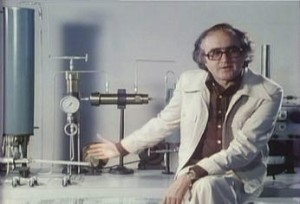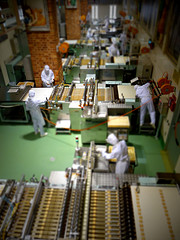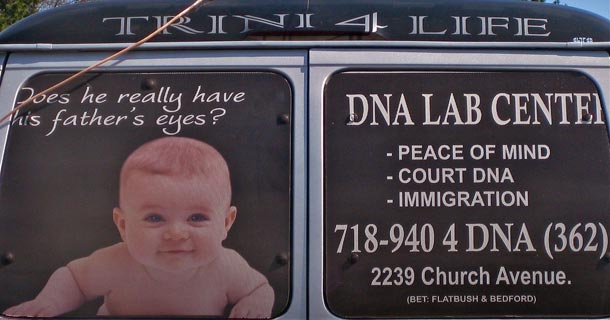 When we heard about the world’s first synthetic lifeform, we realized we needed a science expert to help us explore and share the real significance of the news. So we’re very pleased to introduce our first guest blogger, Alexandra Ruaux (wife of regular contributor Alexander Bowyer). Alexandra has a PhD in Biochemistry from the University of Southampton, UK and is currently a postdoctoral researcher at the Biotechnology Research Institute in Montréal, where she spends most of her days growing and isolating bacterial proteins to determine their molecular structure. She has published several journal papers and contributed structures to the Protein Data Bank.
When we heard about the world’s first synthetic lifeform, we realized we needed a science expert to help us explore and share the real significance of the news. So we’re very pleased to introduce our first guest blogger, Alexandra Ruaux (wife of regular contributor Alexander Bowyer). Alexandra has a PhD in Biochemistry from the University of Southampton, UK and is currently a postdoctoral researcher at the Biotechnology Research Institute in Montréal, where she spends most of her days growing and isolating bacterial proteins to determine their molecular structure. She has published several journal papers and contributed structures to the Protein Data Bank.
Synthia is the first living organism on the planet to have a computer for a parent. From just four bottles of chemicals (the basic components of DNA; Adenine, Cytosine, Guanine and Thymine) Dr. Craig Venter and his research group at the J. Craig Venter Institute synthesised the entire genome of a bacterial cell. They used a known genetic code as a recipe and transplanted it into a different cell, effectively causing it to ‘change’ species. What does this mean for mankind? Are we about to have the magic of life reduced to just 4 chemicals? Will terrorists be able to synthesise terrible bio-weapons? Can we now design cells that do whatever we want?
Read more »






 @
@ Tags:
Tags: 












 Like all images on the site, the topic icons are based on images used under Creative Commons or in the public domain. Originals can be found from the following links. Thanks to
Like all images on the site, the topic icons are based on images used under Creative Commons or in the public domain. Originals can be found from the following links. Thanks to